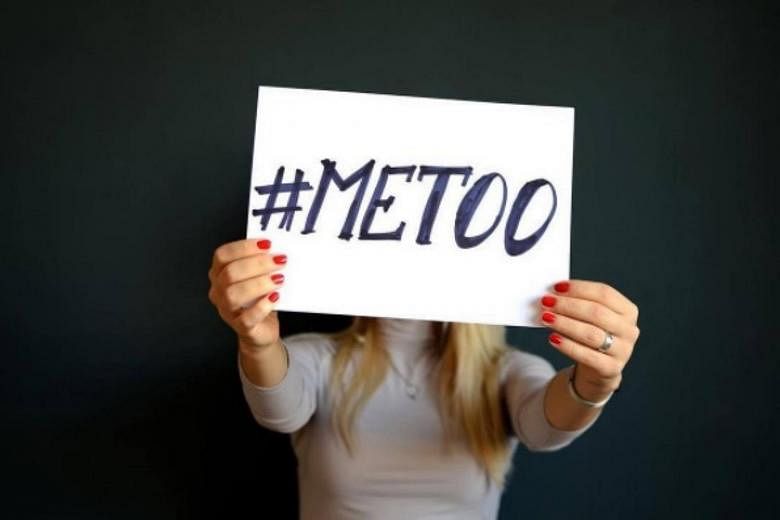Over the past week, you may have noticed an online campaign sprouting up on social media.
Me too.
No, as in, that is literally the name of the campaign. (Although, yes, I did notice it myself too.)
The campaign, which has seen women who have suffered sexual assault and harassment share their stories with the hashtag #MeToo, has gone viral on the Web.
Actress Alyssa Milano first popularised the call to arms, in a tweet last Sunday, in the light of the sexual assault and harassment accusations against top producer Harvey Weinstein. The hashtag has trended worldwide, with accounts pouring in from Calgary to Cairo and from Paris to Perth.
Some share very intimate, detailed accounts of their experiences, which give audiences an understanding of their plight. Others simply tweet the hashtag in support. A movement like this is commendable for the fact that it mobilises a community and helps victims find solace in solidarity. After all, in difficult times it is comforting to have someone to lean on.
I have personally not had such an experience, so I wouldn't go as far as to say: "Yes, I understand where you're coming from, and I support you."
I was very surprised, and indeed quite shocked, to see on my Facebook feed the number of people who came out with stories of their own experiences with sexual harassment. It drilled into my mind the reality and disturbing magnitude of the situation.
Well, sure, I knew some of my friends have had such encounters. But I didn't know there were so many of them.
Also, what struck me about the #MeToo campaign was that victims who came out with their stories were not all women.
As a society, we do not often associate sexual assault and harassment with male victims. But the reality is that there are such cases. And they cannot be ignored. Even Terry Crews - big, buff, muscular Terry Crews, also known as Sergeant Terry Jeffords from American police sitcom Brooklyn Nine-Nine - has been a victim.
He said in a series of tweets last week that he was groped by a "high-level Hollywood executive" at an industry function last year, but did not fight back as he knew the headlines would reflect the situation badly.
This pushes the narrative away from one of men versus women to one of offenders versus victims, and that is the actual battleground society needs to focus on.
One of the questions I had when I first noticed the campaign kicking off was what it all encompassed. Did it involve catcalls? How much would be too much?
Because while we say no sexual harassment is light enough to be ignored, we have to admit that being raped is flat-out worse than being on the receiving end of catcalls on the street. (To be honest, I don't understand the thrill some people get out of catcalling. Unless it's literally calling a cat. Then I totally understand it because cats are amazing creatures.)
What I'm trying to say is that we should not generalise all forms of sexual abuse. Not all of them are equal, and we would not be doing justice to the girl who was raped in her teens if we were to compare her with a woman who was cat-called while walking down Clarke Quay on a night out. Not that I mean to discount the trauma of being cat-called and gawked at.
All right, so catchy hashtag social media campaign? Check.
Caught on and gone viral? Check.
What next, then, is the question.
Like all other social media hashtag campaigns that took off, #MeToo may risk fizzling out into nothing more than what it currently is - words.
What the world needs now is to translate the hashtag into action. Society should not just rest on the laurels of this feel-good moment we have going on. The awareness has to be spread and tangible change effected.
In Singapore, perhaps because of a culture that prioritises the stability and functionality of a group ahead of the individual, there may be (in fact there probably are) victims keeping quiet and suffering in silence.
Recently, a Mediacorp employee was dismissed after making inappropriate remarks to Channel NewsAsia producer Park Juwon. The male cameraman had referred to a part of her body and said that was the reason she could not be a presenter. Only after her complaint went public did others who had similar experiences come forward.
Sure, companies have feedback channels for staff to report inappropriate behaviour. And a law exists to deal with such situations - the Protection from Harassment Act passed in March 2014 provides civil and criminal recourse for victims of harassment.
But better yet would be a society that has no need for such formal and punitive means to prevent heinous acts from occurring. Respecting another human being, and exercising restraint beyond what an animal is capable of, should become the norm.
I know not everyone will agree with my views, and to those who disagree, I extend an invitation to drop me an e-mail. My e-mail address is below.
As for me, I long for a world where we can be saying "me too" to something positive.
SEE Will #MeToo be just another viral trend?
•#opinionoftheday is a column for younger writers in the newsroom to write about issues that matter to them and their peers.


